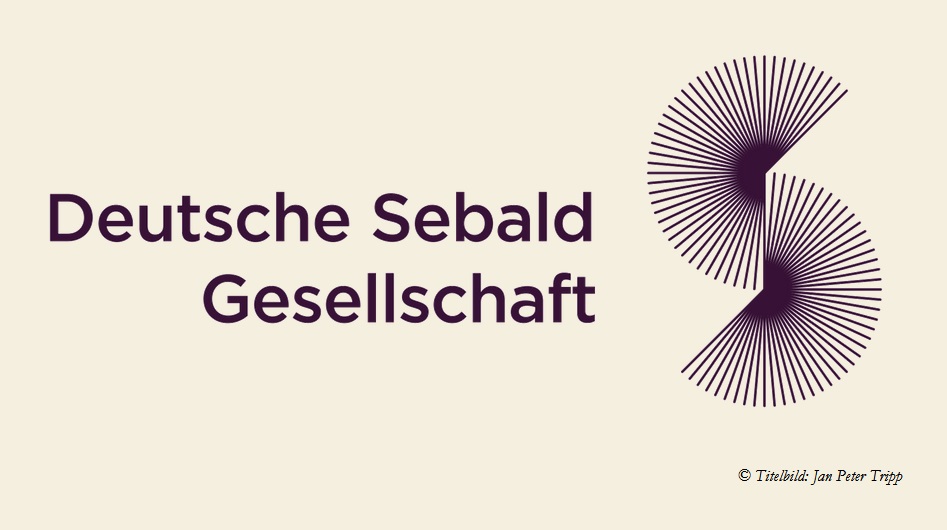Conference on W.G. Sebald & Thomas Bernhard
There is a new Sebald conference coming next month in Bavaria. Below is (more or less) a Google translation of the original German announcement, and the German original can be found immediately following the English version. Registration information is at the end. Original source: https://www.sebald-gesellschaft.de/natur-verantwortung-zerstoerung/.
“Nature, responsibility, destruction”: Facets of Nature Writing by Thomas Bernhard and W.G. Sebald. A conference of the German Sebald Society and the International Thomas Bernhard Society
on the occasion of W.G. Sebald’s 80th Birthday. May 9-11, 2024 in Sonthofen, Germany.
Program:
Thursday, 9. May 2024
6 p.m.: Opening of the exhibition of Jan Peter Tripp in the StadtHausGalerie, Sonthofen.
Friday, 10. May 2024
10.00–10.30 a.m. Ricardo Felberbaum (Kempten) and Kay Wolfinger (LMU Munich): Welcome.
10.30–11.00: Claudia Öhlschläger (University of Paderborn) & Juliane Werner (University of Vienna): Nature Writing with Thomas Bernhard and W.G. Sebald – Introduction.
Nature Writing as a research trend?
11.30–12.30 pm: Gabriele Dürbeck (University of Vechta): German-language Nature Writing: Hidden Traditional Lines and New Paths.
Bernhard’s and Sebald’s Nature
14.00–15.00: Bernhard Judex (Literary Archive Salzburg): Fascination of the Uncanny. Some remarks on the concept of nature in Bernhard and Sebald.
3 pm–4 pm: Renate Langer (Paris Lodron University of Salzburg): A visit to The Lime Works. W.G. Sebald reads Thomas Bernhard.
4.30–5.30: Clemens Braun (University of Vienna): “Sometimes I mean when I look, everything is already dead.” Natural histories of destruction in Thomas Bernhard, Max Frisch and W.G. Sebald.
Evening event
Berit Shine (Reykjavik): K.I. as Nature Writing? (online).
Reading with Sophia Klink (Munich): Kurilensee. (Shortlisted author for the W.-G.-Sebald-Literpreis 2022).
Saturday, 11. May 2024
10.00–11.00: Alexander Honold (University of Basel): Talk on the three walkers: Thomas Bernhard, W.G. Sebald, Peter Handke.
Nature in tension between responsibility and destruction: positions of Contemporary literature after Sebald.
11.30–12.30: Kyung-Ho Cha (ZfL Berlin): Sebald’s insects.
14.00–15.00: Christof Hamann (University of Cologne): Catastrophic natural history. W.G. Sebald’s peripatetic ars memoria.
3 pm–6.00 pm: Rita Morrien (University of Paderborn): ‘Scorched Earth’ – Marion Poschmann’s marl border and W.G. Sebald’s The Alps in the Sea.
Evening event
7.30 pm: Reading with Christoph Ransmayr (Vienna).
Moderation : Dorothea Hauser (Hamburg), Teresa Löwe (Darmstadt), Cordula Reichart (Sonthofen).
Conception : Claudia Öhlschläger, Juliane Werner, Kay Wolfinger.
For participation, please register in advance at: kontakt-sebald-gesellschaft.de.
Venue : AllgäuSternHotel (www.allgaeustern.de), Buchfinkenweg 2, 87527 Sonthofen, Germany.
Ω
Donnerstag, 9. Mai 2024
18.00 Uhr: Eröffnung der Ausstellung von Jan Peter Tripp in der StadtHausGalerie Sonthofen
Freitag, 10. Mai 2024
10.00–10.30 Uhr: Ricardo Felberbaum (Kempten) und Kay Wolfinger (LMU München): Begrüßung
10.30–11.00 Uhr: Claudia Öhlschläger (Universität Paderborn), Juliane Werner
(Universität Wien): Nature Writing bei Thomas Bernhard und W.G. Sebald – Einführung
Nature Writing als Forschungstrend?
11.30–12.30 Uhr: Gabriele Dürbeck (Universität Vechta): Deutschsprachiges Nature
Writing: Verborgene Traditionslinien und neue Wege
Bernhards und Sebalds Natur
14.00–15.00 Uhr: Bernhard Judex (Literaturarchiv Salzburg): Faszination des
Unheimlichen. Einige Bemerkungen zum Naturbegriff bei Bernhard und Sebald
15.00–16.00 Uhr: Renate Langer (Paris Lodron Universität Salzburg): Ein Besuch im
Kalkwerk. W.G. Sebald liest Thomas Bernhard
16.30–17.30 Uhr: Clemens Braun (Universität Wien): „Manchmal meine ich, wenn ich
hinschaue, es sei alles schon tot.“ Naturgeschichten der Zerstörung bei Bernhard, Frisch
und Sebald
Abendveranstaltung
Berit Glanz (Reykjavik): K.I. als Nature Writing? (online)
Lesung mit Sophia Klink (München): Kurilensee (Shortlist W.-G.-Sebald-Literaturpreis 2022)
Samstag, 11. Mai 2024
10.00–11.00 Uhr: Alexander Honold (Universität Basel): Gespräch der drei Gehenden
(Bernhard, Sebald, Handke)
Natur im Spannungsfeld von Verantwortung und Zerstörung: Positionen der
Gegenwartsliteratur nach Sebald
11.30–12.30 Uhr: Kyung-Ho Cha (ZfL Berlin): Sebalds Insekten
14.00–15.00 Uhr: Christof Hamann (Universität zu Köln): Katastrophische
Naturgeschichte. W.G. Sebalds peripatetische ars memoria
15.00–16.00 Uhr: Rita Morrien (Universität Paderborn): ‚Verbrannte Erde‘ – Marion
Poschmanns Mergelgrenze und W.G. Sebalds Die Alpen im Meer
Abendveranstaltung
19.30 Uhr: Lesung mit Christoph Ransmayr (Wien)
Moderation: Dorothea Hauser (Hamburg), Teresa Löwe (Darmstadt), Cordula Reichart (Sonthofen)
Konzeption: Claudia Öhlschläger, Juliane Werner, Kay Wolfinger
Für eine Teilnahme wird um vorherige Anmeldung gebeten unter:
kontakt@sebald-gesellschaft.de
Tagungsort: AllgäuSternHotel (www.allgaeustern.de), Buchfinkenweg 2, 87527 Sonthofen










